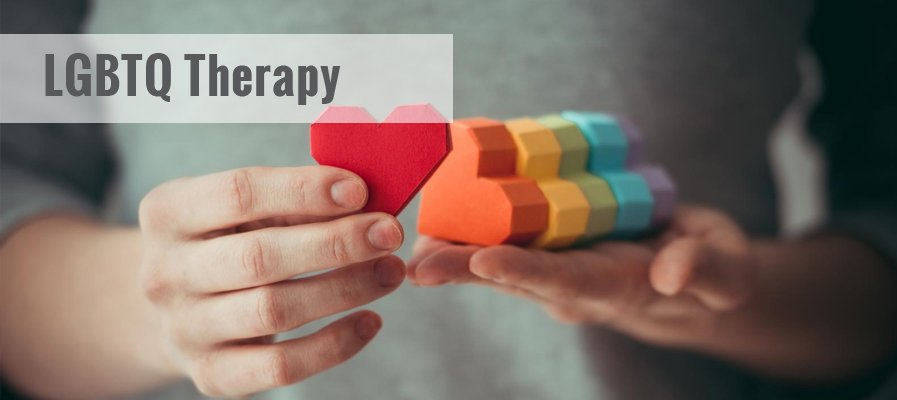Coping with Discrimination: LGBTQ+ Therapist Help and Support
Facing discrimination as a member of the LGBTQ+ community can deeply affect your emotional well-being, identity, and sense of safety. Whether it’s systemic bias, workplace prejudice, rejection from loved ones, or subtle microaggressions, the impact can build up over time—leading to anxiety, depression, low self-esteem, or social withdrawal. One of the most empowering resources available is working with an experienced LGBTQ+ therapist, who offers affirming, specialized care designed to support healing and growth.
A skilled LGBTQ+ therapist can help you process discriminatory experiences, develop strong coping strategies, and reclaim a sense of power and self-worth. Therapy offers a safe space to express the hurt caused by injustice, explore ways to strengthen resilience, and take steps toward personal and emotional healing.
The Psychological Impact of LGBTQ+ Discrimination
Experiencing discrimination as an LGBTQ+ person can have both immediate and long-term consequences. Many individuals report symptoms such as:
- Persistent stress and anxiety
- Feelings of isolation and alienation
- Difficulty trusting others or forming relationships
- Low self-worth and internalized negativity
- Trauma responses or PTSD
Even casual or indirect forms of discrimination—like exclusion, stereotyping, or invalidation—can accumulate, leading to emotional exhaustion. Therapy provides tools to manage these responses in healthier, more self-affirming ways.
How an LGBTQ+ Therapist Can Make a Difference
Traditional counseling may not always acknowledge the complex realities faced by LGBTQ+ individuals. In contrast, an LGBTQ+ therapist understands how discrimination intersects with identity, mental health, and personal history. Here’s how they help:
- Validation Without Judgment
Many clients feel silenced in other areas of life. Therapists trained in LGBTQ+ concerns validate your emotions and experiences without minimizing your reality. - Trauma-Informed Support
Discrimination can be traumatic. LGBTQ+ therapists use trauma-informed techniques to address distress and rebuild your sense of control and confidence. - Building Resilience and Self-Worth
Therapy focuses on strengthening your identity, reframing negative self-beliefs, and fostering pride in who you are. - Safe Exploration of Identity and Experience
Whether you’re questioning your gender identity, recovering from rejection, or managing workplace microaggressions, therapy helps you process everything in a secure, affirming environment.
Common Sources of LGBTQ+ Discrimination
Discrimination can occur in numerous environments, and therapy can help you identify the sources of harm and develop healthy responses. Common areas include:
- Family Rejection or Neglect
Many LGBTQ+ individuals face emotional or physical abandonment from parents or relatives. - Religious and Cultural Pressure
Some clients wrestle with the pain of being seen as “wrong” by communities they grew up in. Therapy helps you separate your self-worth from harmful doctrine. - Workplace or Educational Discrimination
From misgendering to exclusion in promotions, therapists support you in managing stress and exploring legal or organizational responses. - Healthcare Discrimination
Being dismissed or misunderstood in medical settings creates added stress. Therapy provides space to process these injustices and find affirming care.
Developing Healthy Coping Mechanisms
Healing from discrimination isn’t just about surviving; it’s about learning to thrive despite the challenges. Therapy offers structured, personalized coping techniques, such as:
- Mindfulness and grounding practices for anxiety
- Journaling or art therapy to externalize painful experiences
- Role-playing difficult conversations with people in your life
- Creating affirming daily routines
- Practicing assertive communication and boundary-setting
LGBTQ+ therapy emphasizes self-compassion and nurtures your ability to care for yourself, even when the world feels unsafe.
Creating a Supportive Community
A key goal of therapy is to help you build or access a support network. Your therapist may help you:
- Find LGBTQ+ community groups or events
- Join virtual forums for shared experiences
- Explore identity-affirming social media content
- Connect with organizations advocating for LGBTQ+ rights
Being part of a community that understands and celebrates you can be a powerful antidote to the isolation caused by discrimination.
FAQs About Therapy for LGBTQ+ Discrimination
Q: What if I’ve experienced discrimination from a past therapist?
That’s a valid concern. An LGBTQ+ therapist will be transparent about their affirming approach and work to rebuild trust in the therapeutic process. You’re encouraged to ask questions before committing.
Q: Can therapy help with internalized homophobia or transphobia?
Yes. Therapy helps unpack and heal from negative messages internalized over time. It’s a safe space to reframe beliefs and build self-love.
Q: What if I’m not “out” and want to keep my sessions private?
Your privacy and confidentiality are always protected. Therapists work with you based on your comfort level, whether you’re fully out or just exploring your identity.
Q: How do I know if a therapist is LGBTQ+ affirming?
Look for inclusive language on their website, LGBTQ+ experience in their bio, or ask directly in an intro session. A truly affirming therapist will never make you feel unsafe or judged.
Q: Is therapy only for people who are “struggling”?
Not at all. Many LGBTQ+ individuals seek therapy to grow, build confidence, and create healthier relationships. You don’t need to be in crisis to benefit from therapy.
Empowerment Through Affirming Support
Discrimination may attempt to erase or diminish your identity—but with the right support, your voice becomes stronger than ever. An LGBTQ+ therapist provides more than just mental health care—they offer understanding, advocacy, and a shared vision of healing.
By seeking therapy, you are not just reacting to injustice; you are choosing to reclaim your space, your story, and your worth. Every session can be a step forward into a more empowered, authentic version of yourself.


